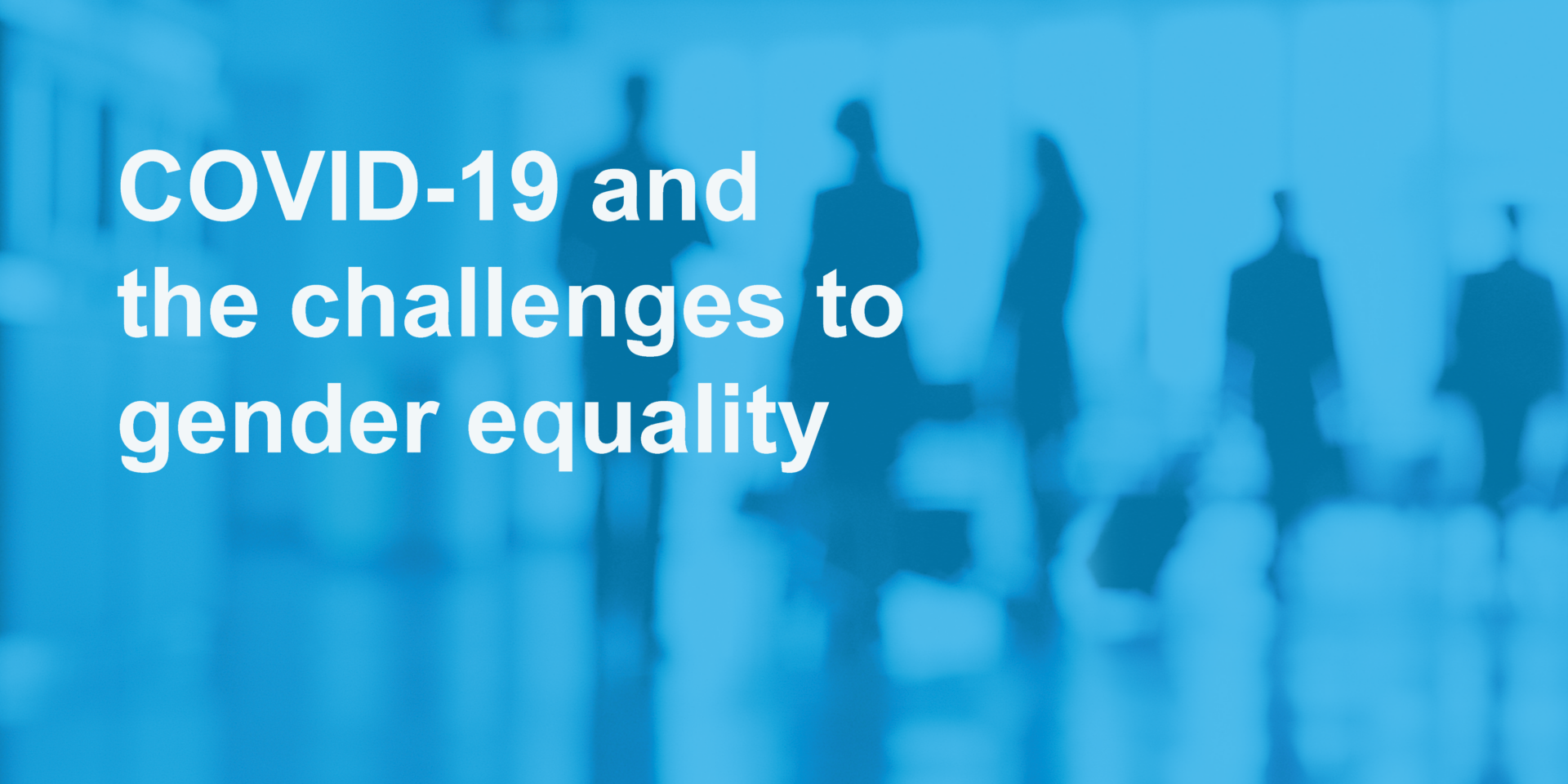Driving commercial and political engagement between Asia, the Middle East and Europe
Driving commercial and political engagement between Asia, the Middle East and Europe
Driving commercial and political engagement between Asia, the Middle East and Europe

While the world grapples with the public health and economic fallout of COVID-19, the pandemic is also having a regressive impact on gender equality. Women are bearing the brunt of the economic impact; according to recent research by the McKinsey Global Institute (MGI), women’s jobs are 1.8 times more vulnerable to this crisis than men’s jobs. While women make up 39 per cent of global employment, they account for 54 per cent of overall job losses.
An important factor is the burden of unpaid care, which has risen during the pandemic, that falls disproportionately to women. Other factors include the disproportionate impact of COVID-19 on female entrepreneurship, the scarcity of family resources in the crisis, as well as attitudes that shape how women experience the economic consequences of a crisis relative to men.
The COVID-19 setback to gender equality follows a period of scant progress. Despite growing awareness of and support for greater gender equality, tangible progress towards parity in work and society has stagnated in the five years between 2014 and 2019, as reported in the MGI’s research. The pandemic is now threatening to undermine the incremental progress made in recent years.
Without intervention to address the disproportionate impact of COVID-19 on women, the MGI estimates that global GDP growth could be US$1 trillion lower in 2030 than if women’s employment tracked that of men in each sector. Conversely however, taking immediate steps to redress the balance could add US$13 trillion to global GDP in 2030.
Reversing this regressive trend will require investment in education, family planning, maternal mortality prevention, digital inclusion, and unpaid care work. With the economic and social shock of COVID-19 driving new ways of thinking about how we work, the crisis represents an opportunity to drive new policies that better capture the substantial economic opportunity of female workplace participation.
Organised in partnership between Asia House and the MGI, this event will discuss the regressive impact of COVID-19 on gender equality, and consider how policymakers and business leaders can act now to remove barriers to greater female labour force participation and a bigger role in society, reaping benefits to economy and society as a whole.
To register interest in this event, please email Edward Danks, Content Producer: edward.danks@asiahouse.co.uk
SPEAKERS
 Anu Madgavkar
Anu Madgavkar
Partner, McKinsey Global Institute
Anu Madgavkar is a partner at the McKinsey Global Institute (MGI), the global business and economics research arm of McKinsey & Company. Her research focuses on labour markets, inclusive growth, inequality and the impact of technology. Anu leads these themes globally as well as for India, where she is based.
 Deepa Mahajan
Deepa Mahajan
Partner, McKinsey Global Institute
Deepa Mahajan is a partner with McKinsey & Company’s San Francisco office. She serves payments and financial services clients, as well as co-leading the North American Digital Payments and Fintech practices.
 Barbara Rambousek
Barbara Rambousek
Director for Gender and Economic Inclusion, EBRD
Barbara Rambousek established the EBRD’s approach to integrating economic inclusion into the Bank’s mandate, to address inequality challenges through private sector investments and policy engagement. Her focus is on creating equitable access to employment and skills, entrepreneurship and finance as well as key infrastructure service, reflecting the specific needs of women, youth, ageing populations, migrants and others.
 David Isaac
David Isaac
Former Chair of the Equality and Human Rights Commission
David recently stepped down as the Chair of the Equality and Human Rights Commission, the public body that promotes equality and protects human rights in England, Scotland and Wales. He is the Provost elect at Worcester College, Oxford, Chair of the University of the Arts London and a partner at international law firm Pinsent Masons. He was awarded a CBE in the 2011 Queen’s Birthday Honours list for services to equality and diversity and recognised as a Diversity Role Model in the legal sector by The Lawyer.
